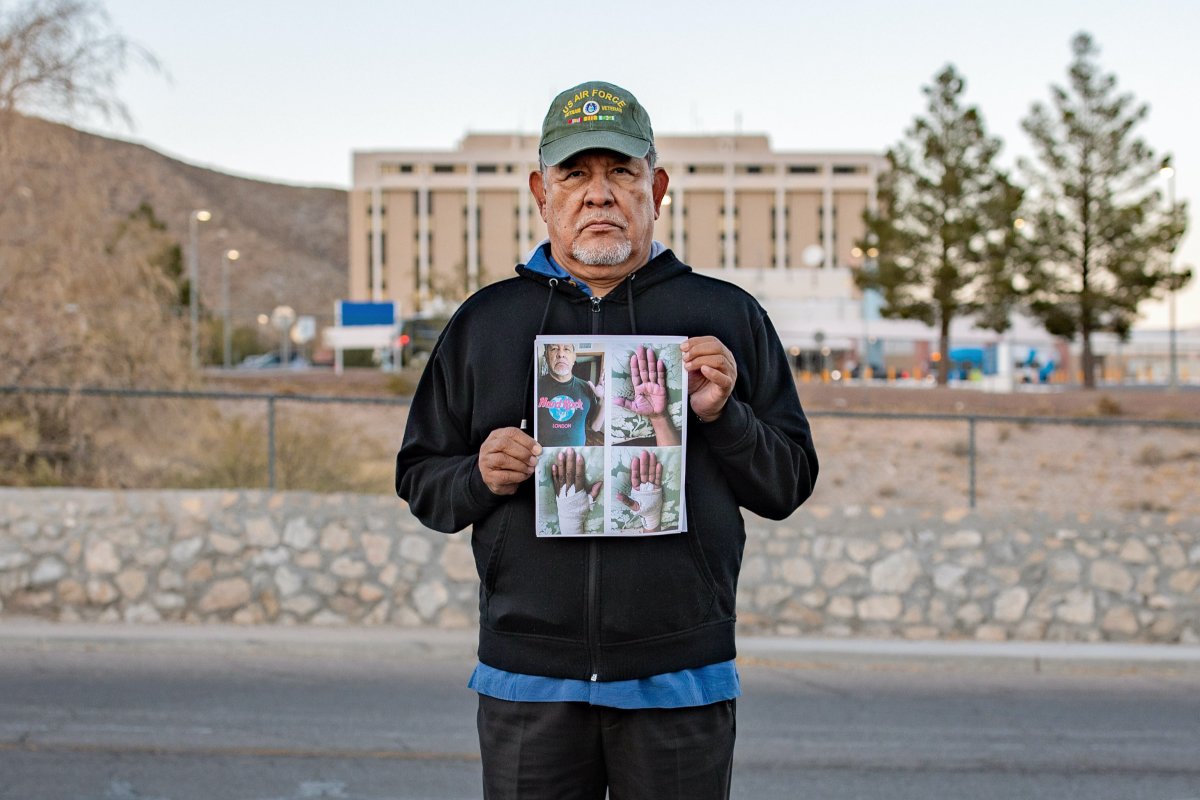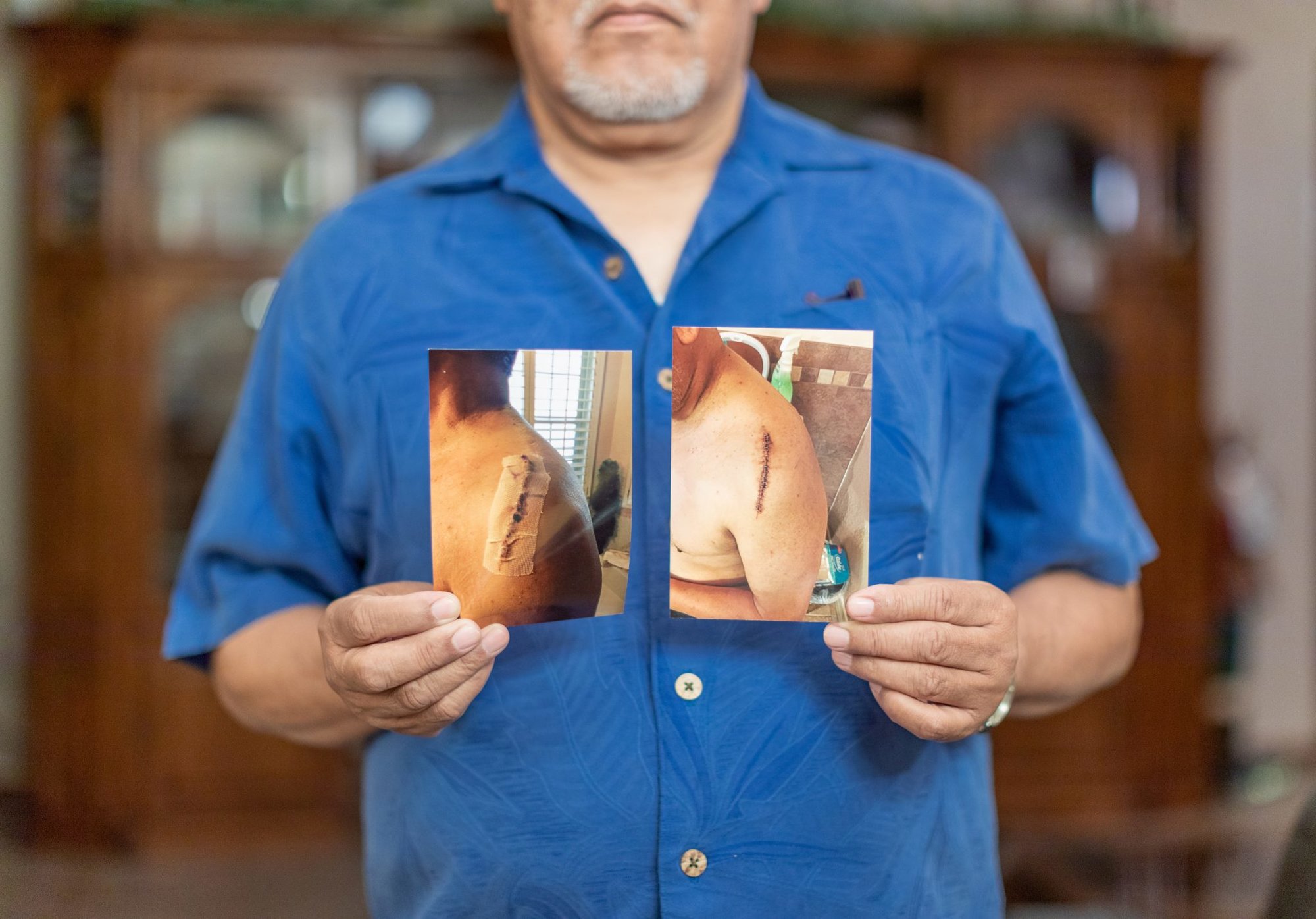Supreme Court Rejects Vietnam Veteran’s Attempt To Sue VA Hospital Police

Vietnam veteran José Oliva alleges federal police assaulted him inside an El Paso, Texas, Veterans Affairs hospital in 2016. He appealed his case against the officers to the US Supreme Court, but on May 24, 2021, the justices declined to hear the case. Photo by the Institute for Justice.
The US Supreme Court on Monday declined to hear a veteran’s case against federal police officers after he was injured during an arrest at a US Department of Veterans Affairs hospital.
In 2016, Vietnam veteran and retired US Department of Homeland Security employee José Oliva walked into an El Paso, Texas, VA hospital for a dental appointment. The 70-year-old walked out needing two shoulder surgeries and treatment for his throat, eardrum, and hand, after an altercation with federal police in the security line at the hospital.
Oliva said the officers targeted him after he failed to show his ID, which he tried to explain was out of reach in a metal detector bin with his other belongings, according to Forbes. Surveillance video shows one officer forcing Oliva into a chokehold as he began to walk through the metal detector. Footage shows the officer take Oliva to the ground, and two other officers are seen helping to restrain and handcuff him.
The officers arrested Oliva for disorderly conduct, but the charge was later dropped. Oliva said he was on the operating table within a week for a shoulder injury.
“I feared for my life,” Oliva told Forbes. “I survived the bloodiest year in Vietnam, and here I was fearing for my life as these officers beat and choked me in a VA hospital in my own hometown. It was three against one, and they had guns. I knew better than to resist.”
In September 2020, a federal appeals court dismissed Oliva’s attempt to sue the officers for violating his civil rights. While federal law allows individuals to sue state and local law enforcement, the law doesn’t cover federal agents, ABC News reported.

The Supreme Court began to close that loophole in 1971, when it ruled that Webster Bivens, who had his home searched and was cuffed and strip-searched without a warrant, could sue the federal narcotics agents who infringed on his Fourth Amendment rights. However, the 5th US Circuit Court of Appeals ruled Oliva’s case differed too much from the precedent established in the Bivens case and ultimately ruled that existing case law shielded the officers from civil liability.
Oliva and his lawyers at the Institute for Justice asked the Supreme Court to take up the case. On Monday, the justices declined to hear it.
“I will never give up,” Oliva is quoted as saying in an Institute for Justice release after the ruling. “As we say in the military: duty, honor, country. We leave no one behind, and we don’t give up.”
Read Next: Soldier Who Lost Hands in Explosion Won 2 Oscars for Portraying World War II Veteran

Hannah Ray Lambert is a former staff writer for Coffee or Die who previously covered everything from murder trials to high school trap shooting teams. She spent several months getting tear gassed during the 2020-2021 civil unrest in Portland, Oregon. When she’s not working, Hannah enjoys hiking, reading, and talking about authors and books on her podcast Between Lewis and Lovecraft.
BRCC and Bad Moon Print Press team up for an exclusive, limited-edition T-shirt design!
BRCC partners with Team Room Design for an exclusive T-shirt release!
Thirty Seconds Out has partnered with BRCC for an exclusive shirt design invoking the God of Winter.
Lucas O'Hara of Grizzly Forge has teamed up with BRCC for a badass, exclusive Shirt Club T-shirt design featuring his most popular knife and tiomahawk.
Coffee or Die sits down with one of the graphic designers behind Black Rifle Coffee's signature look and vibe.
Biden will award the Medal of Honor to a Vietnam War Army helicopter pilot who risked his life to save a reconnaissance team from almost certain death.
Ever wonder how much Jack Mandaville would f*ck sh*t up if he went back in time? The American Revolution didn't even see him coming.
A nearly 200-year-old West Point time capsule that at first appeared to yield little more than dust contains hidden treasure, the US Military Academy said.












